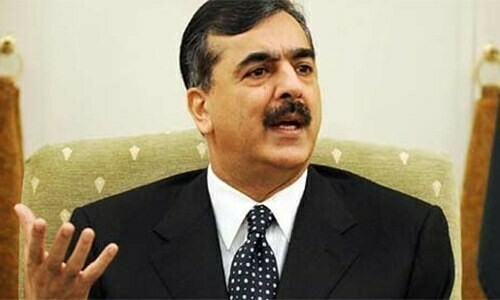DUBAI: Saudi Arabia’s plans to sell state assets — including a stake in energy giant Saudi Aramco — are becoming even more important to its finances as a recession slows Riyadh’s effort to close a budget deficit caused by low oil prices.
Last December, Riyadh released a plan to abolish the deficit by 2020, cutting it from $79bn or 12.3pc of gross domestic product in 2016 via steps such as domestic energy price hikes and tax rises.
The plan eased investor fears about Saudi Arabia’s fiscal stability and reduced pressure on its currency.
But in recent weeks, it has become clear from official statistics that the 2020 target is much too optimistic, economists said. Austerity measures so far have pushed the economy into recession, with GDP shrinking for a second straight quarter in the April-June period.
The slump is a threat to ambitious economic reforms announced by Crown Prince Mohammed bin Salman, who wants to boost private sector growth and develop non-oil industries. So the government has delayed further austerity steps that could hurt businesses or consumers.
Riyadh is reconsidering the speed at which it imposes austerity to avoid pushing up unemployment, the International Monetary Fund said this month. Finance Minister Mohammed al-Jadaan told Bloomberg television in Washington last week that the government would not rush to lift domestic energy prices further.
The result may be a fresh emphasis on raising money from the Aramco sale and other privatisation exercises, until the economy recovers enough to let Riyadh proceed at full speed with austerity, economists in the region said.
The austerity measures have a cumulative impact on economic momentum - each stage becomes even harder, said Monica Malik, chief economist at Abu Dhabi Commercial Bank. If oil stays at $50 to $60 a barrel, we expect to see deficits way beyond 2020.
The government faces a chicken-and-egg problem: it needs to spend more to boost growth, but finding more funds to spend is hard when growth is low. By obtaining tens of billions of dollars in funds from abroad, the privatisation programme could be a way out of this dilemma, Malik said.
Sources told Reuters this month that China was offering to buy up to 5pc of Aramco directly. Consultancy Eurasia Group said it would be tempting for Riyadh to accept such a proposal in advance of a public offer and international listing of Aramco shares, which could occur in late 2018 or 2019.
“An immediate cash injection through a private placement could prove too attractive to turn down,” Eurasia said.
An Aramco spokesman said a range of options for a public listing of Aramco remained under active review. “No decision has been made and the IPO process remains on track,” the spokesman said without elaborating.
Published in Dawn, October 20th, 2017












































